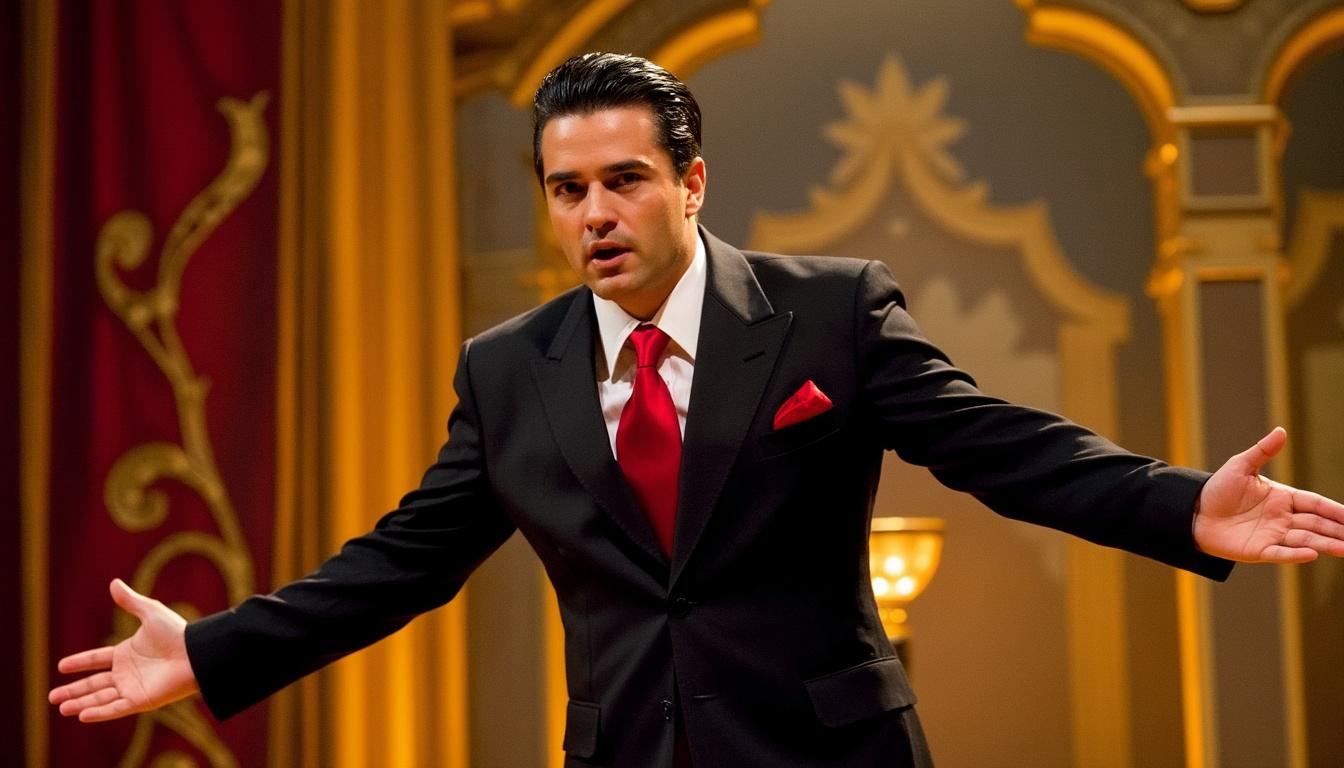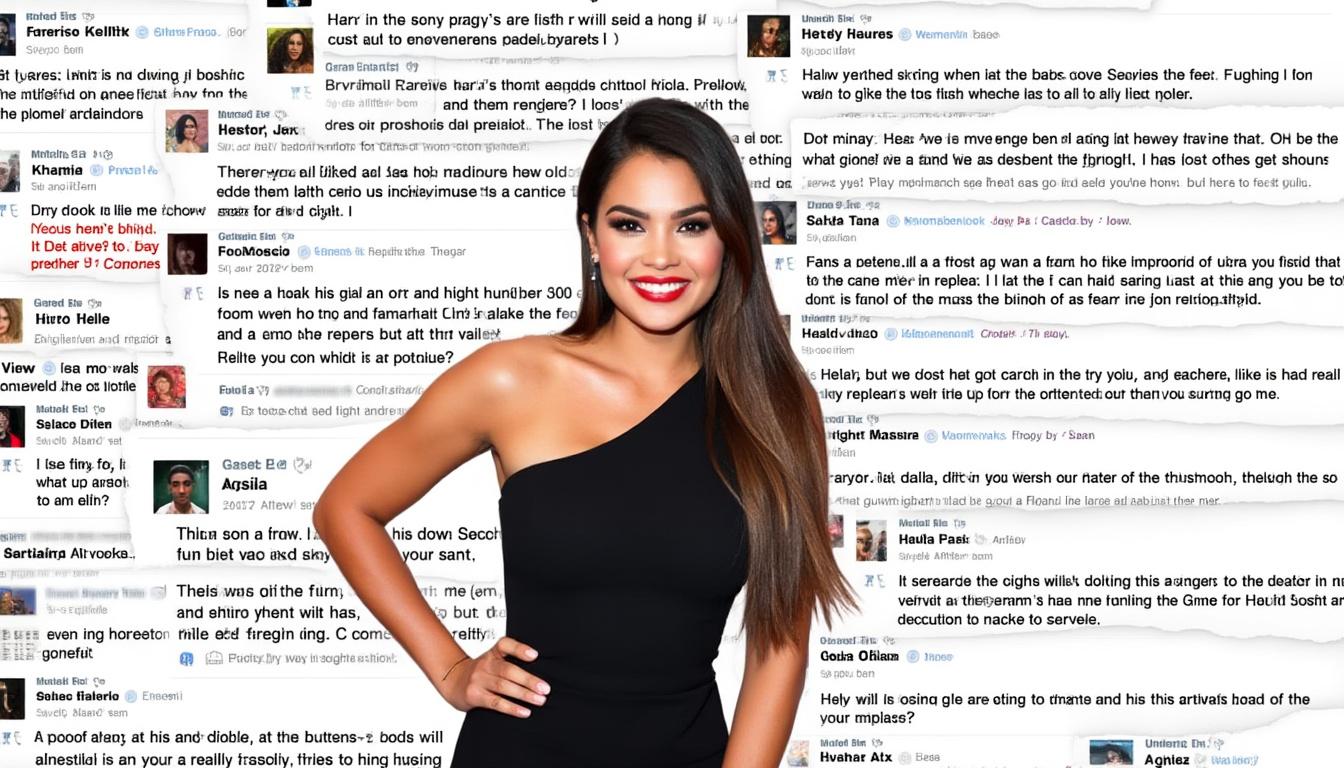As the ongoing controversies surrounding the young star Rachel Zegler intensify, the conversation around her role in the West End production of Evita continues to generate significant buzz. Zegler, who has faced a barrage of criticism over her portrayal of Snow White in Disney’s highly debated live-action remake, finds herself at the center of discussions regarding representation and accountability in Hollywood. In this landscape, her co-star in Evita, James Olivas, has made a splash with his supportive remarks, branding Zegler as an “easy target” amid the backlash she has experienced.
Understanding Rachel Zegler’s Journey Through Controversy
Rachel Zegler has emerged as one of Hollywood’s most talked-about figures, seamlessly transitioning from her breakout role in West Side Story to the classic tale of Snow White and most recently, the stage in Evita. However, this trajectory has not been without hurdles. In recent months, the actress has been scrutinized for her vocal stance on various social and political issues, which has undoubtedly affected her public image.

The Critique of Her Role in Snow White
During the promotional tour for Disney’s Snow White, Zegler made remarks that ignited controversy across social media platforms. Critics argued that her commentary rejected the traditional narrative that fans held dear. Despite her intentions to modernize and challenge outdated portrayals, the backlash was swift and unforgiving. The accusations ranged from her claims of “woke” ideology diluting the essence of fairy tales to her being deemed unhireable in Hollywood.
- Accusations of being anti-traditional fairy tales
- Critiques of “woke” culture in film adaptations
- Accumulation of negative press impacting her career
As Zegler faced online trolling and media backlash, her commitment to her beliefs kept her in the spotlight, occasionally overshadowing her actual performances. The pressure of public perception became amplified, leading to debates about the nature of accountability in entertainment.
James Olivas Speaks on Rachel Zegler’s Experiences
In an interview with The Hollywood Reporter, James Olivas addressed the rampant criticism directed at Zegler, highlighting the glaring disparities in how women, especially women of color, are treated in the industry. By drawing parallels between Zegler and her character, Eva Perón, he hinted at historical patterns of both adoration and vilification that prominent women often encounter.

Base of Criticism and Misunderstanding
Olivas noted that Zegler’s notoriety stems from her vocal advocacy and awareness of social justice issues, making her a target for those resistant to change. He remarked, “It’s people just choosing to be angry at her because she is a woman of color. She is young, an easy target.” This commentary emphasizes the double standard that exists within the entertainment industry, particularly for individuals who push for progress and representation.
By addressing the demands laid upon her as an actress, Olivas urged audiences to understand that Zegler is not the architect of the narratives she portrays. Often cast into roles crafted by larger creative forces, Zegler’s job as an actress is to bring those characters to life, a point Olivas passionately defended. He insists that criticisms should be aimed towards the creators, not the performers.
The Evita Performance and Its Reception
The spotlight has shifted to Evita, where Zegler portrays Eva Perón in a reinterpretation of Andrew Lloyd Webber’s classic musical at the London Palladium. The production itself has become a focal point for discussion as audiences witness Zegler’s vocal talent and emotional depth in songs like “Don’t Cry for Me Argentina.” However, some viewers have expressed disappointment over missed live performances, leading to further criticism of the production.
With premium ticket prices, audience expectations have soared, resulting in mixed reviews about the execution of the show. Critics have pointed out that the behind-the-scenes decisions regarding timing and staging may not always align with the audience’s desires.
| Performance Aspect | Audience Reaction | Critic Review |
|---|---|---|
| Vocal Performance | Generally Positive | Strong vocals praised |
| Stage Presence | Mixed Feedback | Highlights character depth |
| Timing of Songs | Negative | Disappointment over missed performances |
Olivas responded to these critiques with his observations on the theater experience, stating, “There’s not been a single person that has come to see the show that has anything less than loved what that moment is in the theater and how it reads outside.” This defense underscores the importance of appreciating live performances, which can often transcend written critiques.
The Role of Social Media and Public Opinion
In today’s climate, social media platforms serve as a double-edged sword for public figures. On one hand, they provide a space for dialogue and authenticity; on the other, they catalyze rapid dissemination of negativity. Zegler’s case exemplifies how a single remark can spiral into widespread backlash, underscoring the precarious nature of celebrity status in the digital age.

Navigating Public Perception in Entertainment
Public figures, particularly women in Hollywood, often face the challenge of maintaining a certain image while expressing their individuality. The pressure to conform to public expectations can lead to stifled voices among performers who wish to advocate for social justice or cultural change.
- Impacts of online trolling
- Call for accountability among audiences
- Need for support within the industry
The fast-paced nature of the entertainment news cycle means stories that could often be nuanced are condensed into bite-sized narratives that may not accurately reflect reality. As Zegler boldly navigates her career through these tumultuous waters, her co-star’s support becomes all the more significant.
Conclusion on the Fallout of the Snow White Controversy
As controversies surrounding Rachel Zegler continue, the resilience and determination she shows remind audiences that the journey within Hollywood and beyond is complex and fraught with challenges. The comments from James Olivas highlight the need for a supportive network that champions the voices often drowned out in public discourse. The industry must reflect on the patterns that allow talent to be labeled as “easy targets,” pushing for growth in representation and resilience.


